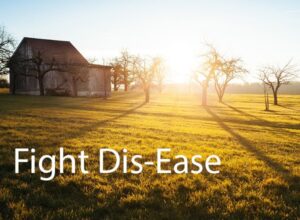Read time 6 minutes
This blog is another opportunity to feel grateful. Thank you, Universe, for continuing to bless me with recovery and health.
Just adding a hyphen to the word (disease) made things much more approachable.
My negative perspective completely changed when I looked at ‘Disease’ as ‘Dis-ease’. In comparison, it sounds softer and easier. Isn’t?
My sense of curiosity deepened after some minor symptoms became the leading factors of my diagnosis.

I was diagnosed with a rare disease called Isaacs’ Syndrome. Isaacs’ is a neuromuscular health condition that stems from muscle hyperactivity. In the process, I also discovered that I had Lyme disease. Lyme is a bacterial illness that gets transmitted through ticks. Glaucoma also accompanied me. Glaucoma is an eye-related disease that damages the optic nerves. And Membranous Glomerulonephritis is a progressive kidney disease. I faced tremendous issues with my gut, stomach acid, and digestive enzymes. I also developed Irritable Bowel Syndrome (IBS), Diabetes, and Blood Pressure.
The combination of such complexities was enough to introduce innumerable challenges that created unimaginable hindrances to my normal life.
Questions like: Where did I go wrong? Were there any other underlying factors that led to the diagnosis? were constantly troubling me and therefore I started to talk to some known people who could give me insights:
Understanding Disease and Dis-ease
The term disease refers to a medical condition. It refers to an illness that affects us and refrains the body and mind from normal functioning. It is associated with signs and symptoms.
The term “disease” comes from the old French term desaise. It means discomfort. It entered English in the early 14th century meaning, inconvenience or trouble.
Whereas dis-ease means a lack of ease or comfort. The intent is to focus on the natural state of comfort or ease being disturbed or imbalanced.
Today many medical practitioners use the word disease in its original sense by adding a hyphen as ‘dis-ease’ which means lack of ease.
It is important to understand the difference between disease and dis-ease for healing.
The difference encloses a holistic point of view of a person’s well-being. Healing or well-being involves addressing both the genres, disease and dis-ease.
‘Disease‘ refers to a pathological condition with symptoms. It often considers and focuses on the physical aspect of being ill.
Whereas ‘Dis-ease’ is a more holistic concept. It may or may not involve specific symptoms or a diagnosed condition but surfaces a lack of harmony within the mind, body, or spirit.
Healing or recovery is a broad-based concept that focuses on restoring balance. They often include restoring various dimensions that contribute to wellness, social and psychological. From a longer-term perspective, it is important to be at ease to avoid disease. Whereas medical treatments may be symptomatic and focused on dealing with diseases.
For having a harmonious life, it is important to acknowledge and agree with the distinction between the two theories.
Recognizing ‘dis-ease’ or a state of unease is an important step in preventing diseases.
This idea emphasizes being aware of the early signs and symptoms that may show the onset of an illness. Early detection could give be an opportunity to make necessary changes before the progression to a more serious disease.
Implementing Holistic approaches to Healing
The mind-body connection is an interesting area of study. It emphasizes how our emotions, thoughts, and various beliefs can impact physical health.
Research proves that negative emotions and stress can cause detrimental health effects. It releases certain hormones that could be bad for our complete immune response.
Mind-body practices such as yoga and meditation can be positive to wellbeing. It helps reduce stress and inflammation by managing many chronic symptoms.
This Mind-Body connection could be deepened by various practices. Meditation, adhering to a healthy diet, and regular exercise could be very helpful.
A holistic healing approach acknowledges an interconnection between mental, emotional, and spiritual health. Every individual may have a unique way of approaching holistic health practices. Tailored therapies could help fulfill one’s needs.
Incorporating these practices into daily routines can find balance and cultivate mental peace.
My Experience with a Rare Neurological Disease
Isaacs’ Syndrome is a neuromuscular health condition that stems from muscle hyperactivity. It characterizes unpredictable situations and symptoms with a heightened sense of uncertainty. My day was filled with anxiety, feeling hopeless, frustrated, and demotivated. There’s no known cause or cure, but it is a lifetime battle.
My identity changed from being a healthy person to becoming a patient. The transition was torturous, to say the least. The suffering percolated into an integrated interventional process.
Dealing with stabbing pain, twitches, and alien symptoms throughout the body isn’t easy. I was confined to bed with props and prescribed medicines.
I wish I paid attention to my dis-ease symptoms early.
Early detection of my dis-ease could have led to prompt medical interventions. I would have been in a better position to start medicines and associated treatments way before its progression.
Here’s the thing: My body was smart enough to give me warning signs when things weren’t right. Yet, I ignored the signals and continued acting innocent. I was convinced that taking breaks from work would break my momentum.
For instance, I was naive not to figure out that what started as a mere dis-ease was just the foundation. My early symptoms of cramps, muscle loss, fatigue, fevers, and digestive issues were indicating something big. It was building the base recipe for my future burnout.
I took my health for granted.
In summary, staying vigilant and recognizing early warning signs can prove important. It helps disease prevention and ensures better health management.
After practicing alternative therapies, I realized the actual importance of being at ease. It lies in reducing the burden of pathology and bringing the focus to the natural state of well-being.
These important activities were supportive:
We are nothing without our emotions and it is an unavoidable and natural part of our life. During my illness, I gathered many negative emotions with enough dis-ease.
The following helped me overcome the dis-ease factor:
- I am thankful to my friend who introduced me to a process called ‘’Self Enquiry’’. The process allows going a step further by self-examining oneself. It undertakes self-awareness exercises to heal from past traumas.
- Initially, an interpersonal conversation was quite challenging. The idea was to surface and face my ugly and unpleasant facts that block energy channels. The exercise helped me dwell deeper to release and confront some hidden emotions. I continue to work on myself as this is how I choose to learn, grow, and face my fear instead of fearing it.
- I started to pay attention and accept my amplified emotions which led to discomfort.
- Acknowledging self-limits and adhering to them is helpful.
- Constructively engaging the monkey mind
- Practices like Chiropractic, Seitai, Iyengar Yoga, and Mind-Body Meditation were helpful. Also, Homeopathic and Ayurvedic treatments eased my journey.
- A family with a reliable network of friends, physicians, and a rare disease community was great.
The sight of the bigger picture:
Diseases can correctly be understood as ‘not being at ease’.
Understanding the difference between disease and dis-ease can ease the path to healing. It helps distinguish whether one has a medical condition or a more subjective state of health. Anyhow, in both cases imbibing different approaches to address the cause is important.
Our holistic health plays an important role in how we live and feel each day.
In my experience, along with medicinal intervention, it was equally crucial to understand my happy quotient. I tried adhering to lifestyle choices that improved the quality version of my life. Also, my rare and chronic diseases gave me several life-transforming lessons.
I encourage my readers to pay attention to their well-being. It is equally important to seek holistic healing approaches. Maintaining a state of ease is of utmost importance to avoid diseases.
DISCLAIMER
The views expressed in this article are the author’s own and do not represent any kind of medical advice.


